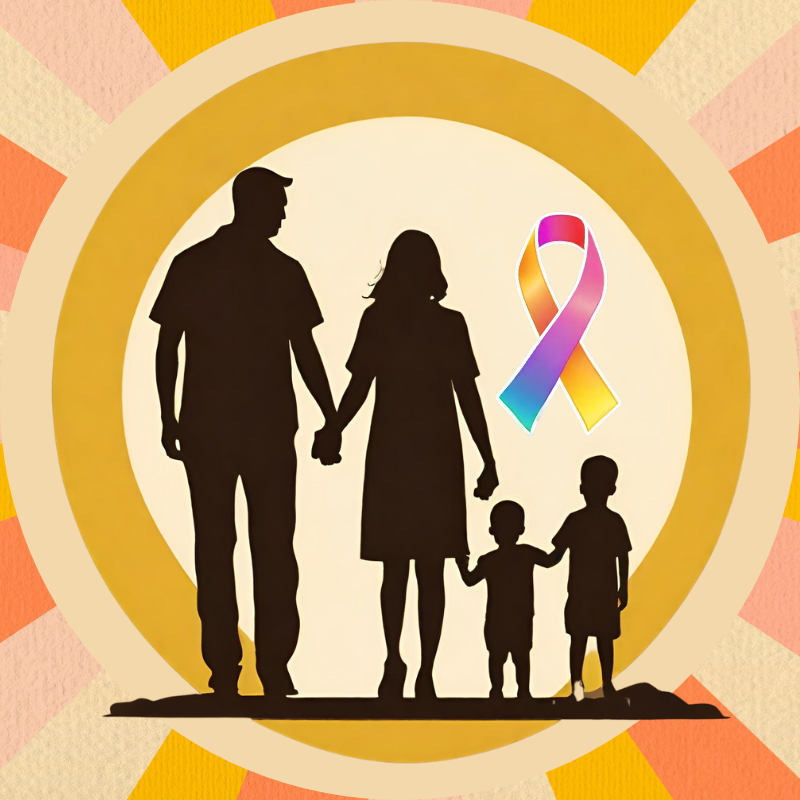Does a Family History of Cancer Increase the Risk?
By Cyndy Murray, Certified Genetic Counselor
In my research for this article, I couldn’t find discussions about family history of cancer without focusing on specific genes. While problems in certain genes can impact cancer risks, only 5%-10% of all cancers are hereditary. What if there is a family history, but no known genetic reason? In my 9 years as a cancer genetic counselor, I’ve seen many patients who have a family history of cancer.. Many of these patients go on to have genetic tests that do not identify any hereditary syndromes. That being said, many of them still have an increased risk and may need to adjust their screens, yet no one online is talking about this!
Does a family history of cancer cause an increased risk?
Familial cancers, or clusters of the same cancer type in a family, can change the risk for cancer in unaffected family members. Even if there is no known genetic mutation and just one first-degree family member (parent, sibling, or child) with cancer, it will change a person’s risk of developing the same type of cancer.
In this article, we will cover how a family history of cancer can change a person’s risk, why that risk exists, how the risk varies based on cancer type, and what should be done if someone has a familial risk for cancer.
How does having a close (first-degree) family member with cancer change the risk?
“For some individuals, the family history of cancer does not meet criteria for a hereditary cancer syndrome but may warrant changes in cancer screening.” (PMID: 24493721)
If you have a parent, sibling, or child with cancer, oftentimes the risk doubles. While this may seem significant, if the baseline chance for that type of cancer starts low, then the doubling of risk remains low. For instance, if a parent had a rare cancer affecting 0.1% of the population, then your lifetime risk may only be 0.2%. However, with more common cancers such as colon cancer (affecting 3%-5% of the general population), your lifetime chance could be as high as 10%.
Why is the risk for cancer increased with a family history, if there is no cancer gene involved?
Most cancers result from a build-up of problems over time, not just one factor. Close family members may share minor genetic variations, other biological factors, lifestyles, and other environmental factors. Close relatives have a higher chance of having a combination of more minor risk factors in common, increasing their chance of developing the same types of cancer.
What levels of risks are associated with family histories of the more common cancers?
Here is a table outlining the risk of developing certain cancers based on having one first-degree relative affected. Keep in mind that these are general estimates and can vary based on the study that is quoted, other family history, and other personal risk factors.
Should anything be done differently if a person has a close family member with cancer?
If a close family member has cancer, you may qualify for extra screens at an earlier age. Guidelines depend on the cancer type that is in the family. For example, if a parent or sibling has colon cancer, colonoscopies every five years, starting at age 40 are recommended instead of every ten years, starting at age 45 or stool-based testing every three years.
For specific cancer types in close relatives, refer to the articles linked below:
Colon Cancer: coming soon
Prostate Cancer: coming soon
Pancreatic Cancer: coming soon
Ovarian Cancer: coming soon
Uterine Cancer: coming soon
Proactive Warriors:
For more detailed information, updates, and answers to FAQ’s, join the Proactive Warriors Newsletter here:
*This blog is for general informational purposes only and does not constitute the practice of medicine, nursing or other professional health care services, including the giving of medical advice, and no doctor/patient relationship is formed. The use of information on this blog or materials linked from this blog is at the user's own risk. The content of this blog is not intended to be a substitute for professional medical advice, diagnosis, or treatment. Users should not disregard, or delay in obtaining, medical advice for any medical condition they may have, and should seek the assistance of their healthcare professionals for any such conditions.

